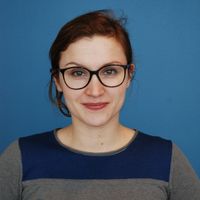 A Post-socialist Perspective on Emerging Audit Culture: Changing Practices and Subjectivities of School Teachers in a Russian Region
A Post-socialist Perspective on Emerging Audit Culture: Changing Practices and Subjectivities of School Teachers in a Russian Region
Associate Professor Nelli Piattoeva, NSR, Tampere University
Time: Tuesday, 21 January 2020, at 16:15-17:45
Place: Tampere University, Pinni B, lecture hall B1096, Kanslerinrinne 1, 1st fl.
This lecture presents empirical findings and theoretical discussions generated collaboratively on an international research project “Transnational Dynamics in Quality Assurance and Evaluation Politics of Basic Education in Brazil, China and Russia (BCR)” funded by the Academy of Finland in 2014-2017 and links them to ongoing scholarly debates on governance by numbers and performance metrics in the sphere of school education. Embarking on a sociology of the actual and localized ‘audit culture’, the lecture focuses on the question of How the introduction of novel quality assurance principles and measurement tools influences subjectivities and observable practices of teachers in schools. Studies on audit cultures across different sectoral and geographic contexts have emphasized their deeply political and personal consequences. This is because evaluation processes that rely on the quantification and ranking of complex qualitative phenomena make remote control possible through surveillance and access to the inner world of an organization and individuals working therein. Earlier research on the influence of expanding audits and performance management on the subjectivities of school teachers points to the damaging effects of performance-based accountability on teachers’ autonomy and professional identity, and documents a predominantly negative attitude of teachers towards accountability reforms. Scholarly accounts of post-socialist transformations show how professions, practices and personalities have been both affected by the introduction of audit cultures and, simultaneously, how enduring socialist and even pre-socialist structures and practices have helped to construct forms of resistance to and isolation from the dominance of performance metrics. In the case of the studies documented here, some teachers’ reactions, such as fabrications or formalism, appear reminiscent of responses to socialist plans and communist bureaucratic controls. Overall, the lecture points to the importance of examining actually emerging audit cultures in contexts as forming at the messy interface between subversion and submission by their subjects.
According to the tradition of pragmatism and symbolic interactionism, the social self constitutes by social interaction. After explaining this connection, the here presented contribution analyses the consequences of audio-visual mediatisation in the last decades of the 20th century and the implications of digital mediatisation in the 21st century for the self which is put into question by these developments. It is made obvious that there happen media-induced transformations of the self. Nevertheless, it is still of great significance for initiating creative processes and the possibility of emancipation.
Keywords: Social self, social interaction, audio-visual and digital mediatisation, the post-modern age, the oversaturated self, the culture of simulation, the virtual self, virtual transparency
Welcome!
*******************************************************************
The Speakers Series is a series of Studia Generalia Lectures in the Study of Society organized by Tampere University Institute for Advanced Social Research (IASR) in cooperation with the New Social Research Programme (NSR). The lectures are given by the Research Fellows as well as the distinguished guests of the IASR and the NSR. For the programme, please check the IASR website. Most doctoral students can also get 2 ECTS for attending a minimum of six IASR Lectures, altogether 6 ECTS at the maximum. These 2 ECTS for attending 6 lectures can be earned during two successive terms.
